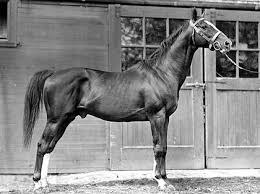-
Causeway Cup, 2021-22UCD women defeated Sac 1-0 today in soccer. Causeway Cup tied at 5-5. Next scheduled event is men's soccer at Davis on October 30.
(This assumes there is a Causeway Cup competition this season. UCD has not updated their Causeway Cup webpage since 2019-20, Sac has not updated theirs since 2017-18.)
(We can speculate whether or not there will be baseball.) -
UC Davis Baseball Team and Coaching Staff SuspendedAnd we're not talking a faculty or research job where background checks may take some time....this is for entry level service (housekeeping, food service, physical plant...) type positions. I can't get an email from a local restaurant that doesn't encourage readers to apply for a job. Restaurant jobs are going begging and restaurants are cutting back their hours, but takes forever for the U to do what it is that they do.....
-
UC Davis Baseball Team and Coaching Staff SuspendedHaving little to do directly with the investigation into the baseball team, but I know of someone who is dealing with hirings and promotions at UCD, (at both the Davis and Sacramento Medical Center locations). He/she says that the process is interminably slow and drawn out.
-
FCS Scores - Week 29-7, Sac at the half, but UNI opened up in the third quarter. 34-9 at the end of three.
East side stands at Sac are empty. We'll call it social distancing. -
FCS Scores - Week 2Two point conversion attempt failed. 28-23 with 3 minutes and change. Oklahoma State ball. Tulsa has one time-out left.
-
FCS Scores - Week 2Hold that thought, Tulsa just went downfield with ease. Now 28-23 with extra point pending.
-
Week 3: Dixie State at UC DavisHappy Birthday to one of the few people on this board I can call “Old Timer,” …but I won’t. That would be rude.
Enjoy your celebration. -
Other gamesAnd Cal comes one step closer to asking Sac’s AD for permission to talk to Troy Taylor….Goes up 14-0 on Nevada in the first quarter and loses 22-17.
-
Opening Day 2021 - @ Tulsa...however they did not incur the training, travel and accommodation costs of playing an FCS opponent either.
-
Keelan Doss: Raider WatchKeelan Doss and Roster Purgatory:
https://www.yardbarker.com/nfl/articles/raiders_wr_keelan_doss_and_the_state_of_roster_purgatory/s1_16460_35713832 -
2021-22 MBB Scheduling NewsNo doubt you're correct. Things like that happen. One time USC couldn't find a football game and reached down to schedule an FCS football team. Imagine that.
That explains DII Academy of Art. But NAIA UC Merced? Rumored game against DIII Whitman College? All in the same season?
We live in weird times. Hopefully things will right themselves in the near future. Basketball will find it's groove. Baseball will have a rebirth.
Go Ags! -
2021-22 MBB Scheduling NewsAgreed, but that means playing Academy of Art is more reasonable than playing UC Santa Cruz, (DIII) or UC Merced (NAIA). i threw out those schools because there is at least some neighborhood or historical connection....fellow UC schools, or former conference foes in the NCAC or CCAA. Again, I would emphasize only one game every other year or so.
Back in the DII days we used to travel to Berkeley every year for a game. Those days are obviously gone. -
2021-22 MBB Scheduling NewsOn scheduling down...I agree. I hate these games. One, every once in a while maybe, but we have two this coming season and there were rumors of a third? How does Bob Dunning think UCD is a Pac 12+ ready team if we schedule Academy of Art? I recall a comment on this site that WCC schools avoid Big West schools because Gonzaga wants the conference to keep its strength of schedule at a high level so that, if nothing else, the Zags' schedule looks good, to say nothing of getting other conference teams into the post season. No one benefits by scheduling a bunch of games against lower division schools. I'd prefer to see one game every other year or so against someone like UC Merced, UC Santa Cruz, or a CCAA school, but no more than that.
-
Should Cheer Leading be an Olympic Sport?[MAYBE I SHOULD SAY "SPOILER ALERT" HERE]
So I am up in the middle of the night because I am an old man...The listing for TV says women's gold medal water polo, which at least sounds interesting AND the USA is still in it AND the USA is the defending gold medalist....well the water polo match was apparently already over (USA did it again!) and I watch a woman doing a combination ballet and floor exercise with a hula hoop. That was followed by other women doing something similar with a child's playground ball. One thing that struck me was that they all wore sequined leotards and had their hair pulled up in buns, all looked like the synchronized swimmers without the nose plugs, (or I guess if it's one contestant it is "artistic swimming.") I don't doubt for a second that the artistic and synchronized swimmers are athletic. Some of them make water polo goalies look lame and they hold their breaths for an interminable period. All of this led me to think they should have somthing like the pentathlon where competitors (apparently mostly Eastern European women) compete in both rhythmic gymnastics and artistic swimming, perhaps with a ping-pong, er, table tennis, ball or badmitton shuttle cock...or curling stone. -
Should Cheer Leading be an Olympic Sport?Pub sports might be a testing ground for future Olympic sports. Curling? Shuffleboard on ice. A sport where the equipment consists of a large flat rock and a broom.
Could this lead to pub darts? That could make for some excitement. -
Should Cheer Leading be an Olympic Sport?Let's bring back "plunge for distance!" It was an Olympic event in 1904.
https://en.wikipedia.org/wiki/Plunge_for_distance
72Aggie

Start FollowingSend a Message
- Terms of Service
- Useful Hints and Tips
- Sign In
- Created with PlushForums
- © 2026 Aggie Sports Talk